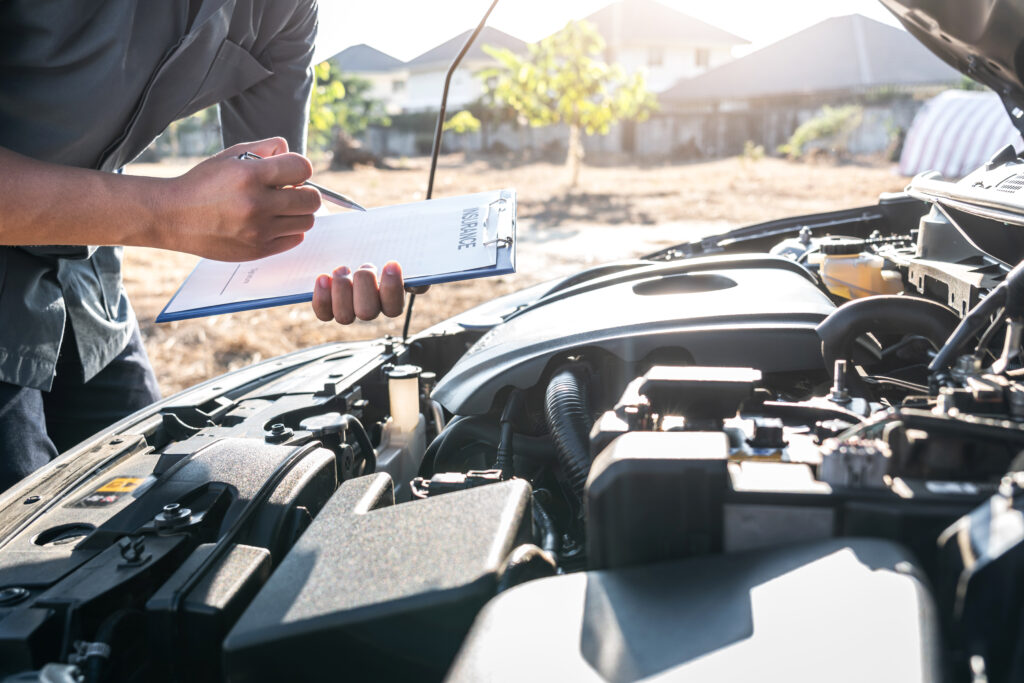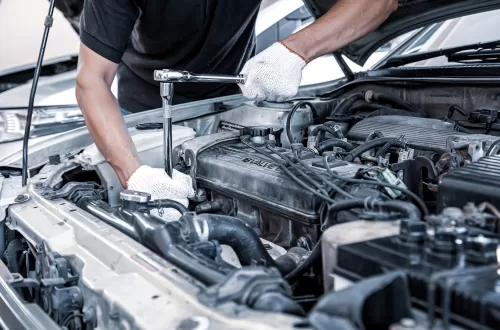How Often Should You Check Your Car Transmission?
Ever wondered how often you should check your car’s transmission to keep it running smoothly? Your car transmission plays a crucial role in your vehicle’s performance, seamlessly shifting gears to provide a smooth drive. Just like any essential component, it requires regular attention to prevent unexpected, pricey repairs. This handy guide will dive into the significance of transmission maintenance and provide practical tips on how frequently you should inspect your transmission. Let’s ensure your car stays in peak condition and your driving experience remains hassle-free!

Understanding Your Car Transmission
Before delving into how often you should inspect your transmission, it’s essential to understand the role it plays in your vehicle. Your transmission is the component that transmits power from your engine to the wheels, allowing your car to shift seamlessly from one speed to another. It’s made up of many intricate components, such as gears, clutches, and hydraulic systems, that all work together to ensure your vehicle shifts gears smoothly and efficiently. Regular maintenance of your transmission not only benefits your car’s performance but also its fuel economy, reducing wear and tear on the engine.
Important to note is that automatic and manual transmissions have unique maintenance needs. For instance, automatic transmissions often require more frequent fluid checks to prevent overheating, whereas manual transmissions might need periodic clutch inspections to avoid slippage. Recognizing these differences can help you take precise, preventative measures to keep your transmission—and by extension, your car—in good, working condition.
Signs You May Need an Inspection
While regular inspections are crucial, being aware of specific warning signs can help you identify potential transmission issues early on, saving you from costly repairs down the line. Here are some detailed indicators that your transmission may need professional attention:
- Delayed or Rough Shifting: If you experience a delay when shifting gears or notice the transition is not smooth, it could signify issues with your transmission fluid, a worn clutch, or even electrical problems in automatic transmissions. Rough shifts can also lead to jolts and vibrations, hinting at deeper mechanical troubles.
- Leaking Fluid: One of the more noticeable signs your transmission needs inspecting is finding a pool of red, amber, or dark brown fluid under your vehicle. Transmission fluid leaks can result from a faulty seal or gasket and should be addressed quickly to prevent overheating and further damage.
- Unusual Noises: Any whining, clunking, or grinding noise coming from your vehicle, especially while shifting gears, could be an indication of worn-out gears or bearings within the transmission system.
- Burning Smell: A burning odor emanating from your car is a serious indicator that your transmission fluid is overheating, possibly due to inadequate fluid levels or contamination. Overheated fluid loses its lubricating capabilities, leading to significant damage.
- Transmission Slipping: If your car suddenly changes gears without any input from you, it’s known as transmission slipping. This can cause a loss of power, engine revving, or your vehicle momentarily acting like it’s in neutral. Slipping often points to worn-out or broken bands that need replacing.
- Noisy in Neutral: Unusual sounds when your car is in neutral could be an indication of low transmission fluid or possibly internal damage, such as loose bearings or worn gear teeth.
- Transmission Fluid Condition: Regularly check the condition and level of your transmission fluid. Transmission fluid that hasn’t spoiled should be bright red and have a slightly sweet smell. If the fluid appears cloudy or dark or smells burnt, it should immediately be changed to avoid damaging your transmission.
How Often Should You Check Your Car Transmission?
The frequency of transmission inspections will depend on various factors such as the age of the vehicle, your driving habits, and the manufacturer’s recommendations. As a general rule of thumb, it’s advisable to inspect your transmission fluid and overall system at least once a year or every 30,000 miles, whichever comes first. However, this interval can significantly vary based on your circumstances. For instance, if you frequently drive in heavy traffic, tow heavy loads, or navigate steep, hilly terrains, you may need to check your transmission more often, potentially as often as every 15,000 to 20,000 miles. These demanding conditions place extra strain on the transmission, accelerating fluid degradation and increasing the likelihood of wear and tear on internal components.
Moreover, and as previously mentioned, different vehicle models have unique maintenance requirements. Automatic transmissions, for example, often necessitate more frequent fluid checks because they operate at higher temperatures, which tend to break down the fluid more quickly. Manual transmissions, on the other hand, might require periodic inspections of the clutch and associated linkages. It’s crucial to consult your vehicle’s owner’s manual for the manufacturer’s maintenance schedule and follow those guidelines closely. Not only will this ensure optimal performance and fuel efficiency, but it will also help extend the lifespan of your transmission.
To keep your transmission in peak condition, consider incorporating it into your regular maintenance checks. Professional auto service centers like Integrity Automotive-Issaquah recommend adding transmission inspections to your routine maintenance schedule. This proactive approach allows you to identify and rectify potential issues early, avoiding expensive repairs down the line. Remember, the relatively small investment of time in regular checks can save you considerable hassle and significant costs in the long term.
Infographic provided by Goodwill Car Donations, a provider of car donations in D.C.
In Conclusion
Regular transmission inspections are not just a good idea; they are essential for keeping your car running efficiently. By staying vigilant and addressing potential issues early, you can prevent costly, unexpected repairs and enjoy a consistently smooth driving experience. Following manufacturer recommendations and incorporating transmission checks into your routine maintenance can make a world of difference.
Remember, consulting an auto service professional can provide you with expert guidance tailored to your vehicle’s specific needs. Prioritizing these routine checks not only protects your car but also enhances your safety on the road. Investing a little time now in regular maintenance will yield significant savings and peace of mind down the line. Stay proactive, stay safe, and keep your ride running at its best!






One Comment
Pingback: